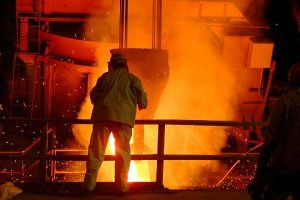
Digitalization is nowadays used as a buzzword. It is often said that it is has been done in the industries for decades. In some meaning that is true – depending on how we define digitalization. For example computers have been used in automation for some 50 years, and they certainly are digital. Sometimes the word is used just for online sales and websites. In a wider meaning digitalisation is today a system – or a system of systems – covering all the activities in a company including management, production, maintenance, customer relations etc.
Many industrial companies in the Nordic countries invest very ambitiously in digitalization. As a ground there is always a data and information platform covering all activities in the company, in a plant or in some certain department. Often the platform is organized as cloud service. At the same time edge computing has growing role: data is first processed close to its source, and saved in the platform in a more advanced form. The platform enables a wider range of data analyses, including Big Data analyses even as a service.
In instrumentation trend is towards IoT based sensor systems. They have their own IP addresses. This enables almost any combination of data and information needed for analysis and optimization. In existing factories there are traditional automation and other legacy systems, and will be also after the change. One demanding task is to develop an interface between them and the wider system.
Artificial Intelligence (AI) was not so long time ago something researchers dealt with. Just a few years ago the word was connected to companies like Google or Amazon. Today it appears in the interviews of and presentations by industry presentatives. In a few years it will be more and more used to control and optimize both technical and business processes.
From industry point of view digitalization means a system of systems covering all the activities, not just scattered local or on-line services for some separated purposes. Companies do not make this for fun, but to find more effective way to run both business, production, maintenance, logistical and other processes.
Some digitalization examples from industry
Outokumpu started their digital manufacturing project recently. “Focus on digital manufacturing will improve Outokumpu’s competitiveness over the next years with Tornio mill becoming the most digitalized and cost-competitive stainless steel mill already by 2020. The same concept will be implemented in all Outokumpu mills by the end of 2023. In Tornio, digitalization is expected to free up over 100,000 tonnes of blocked capacity while inventories are expected to decrease by over 20 days.” (https://www.outokumpu.com/en/news/2018/outokumpu-capital-markets-day-delivering-on-our-promises-for-2020)

Another example is Stora-Enso: ”Deep in the era of digitalisation and such disruptive technologies as advanced analytics, Internet of Things, artificial intelligence, blockchain and robotic process automation, Stora Enso is looking at opportunities for digitalisation throughout the value chain. Digital themes include smart operations, transparent supply chain, digital customer experience, new smart products and services as well as internal business processes. The aim: speed up the company’s transformation.” (https://www.storaenso.com/en/newsroom/news/2018/2/digitalisation-constributing-to-profitable-growth-from-forest-to-customers).
Metsä-Group talks among other things about availability: “Excellent availability is key at a pulp mill in many respects. High availability usually leads to a good production rate, high quality, good environmental performance and cost-efficiency. To achieve excellent availability, equipment failures must be predicted as accurately as possible. Traditional methods usually ensure a relatively good level of availability, but making those final few steps towards excellence require more than just traditional preventive maintenance. In this area, digitalisation has already created many new opportunities, and many more are still to come. Artificial intelligence is quicker than the human mind and it doesn’t get tired, and machine learning makes it possible to take prediction to a new level.” (https://www.metsagroup.com/en/careers/metsa-as-employer/Pages/Digitalisation-is-nothing-new-at-pulp-mills.aspx )
Seppo Saari
Head of R&D, Industry and natural resources
Lapland University of Applied Science
seppo.saari@lapinamk.fi









